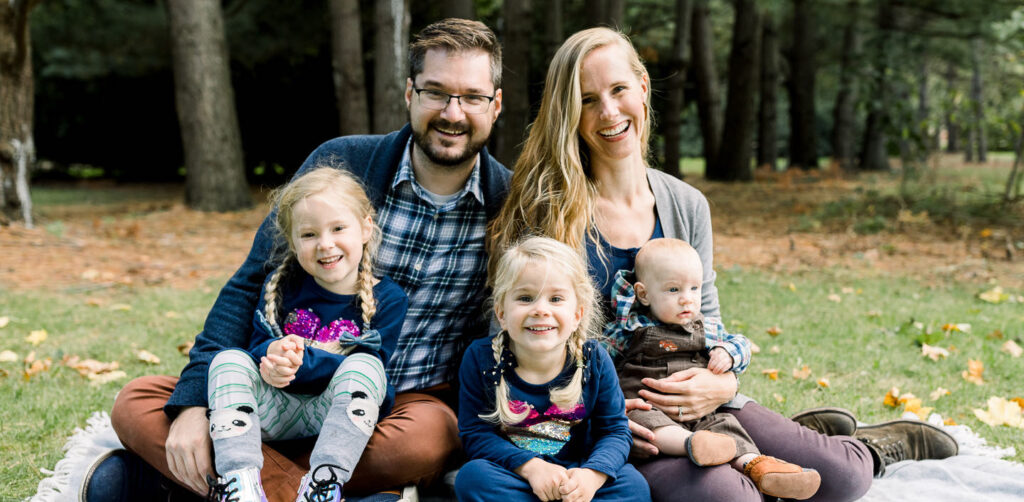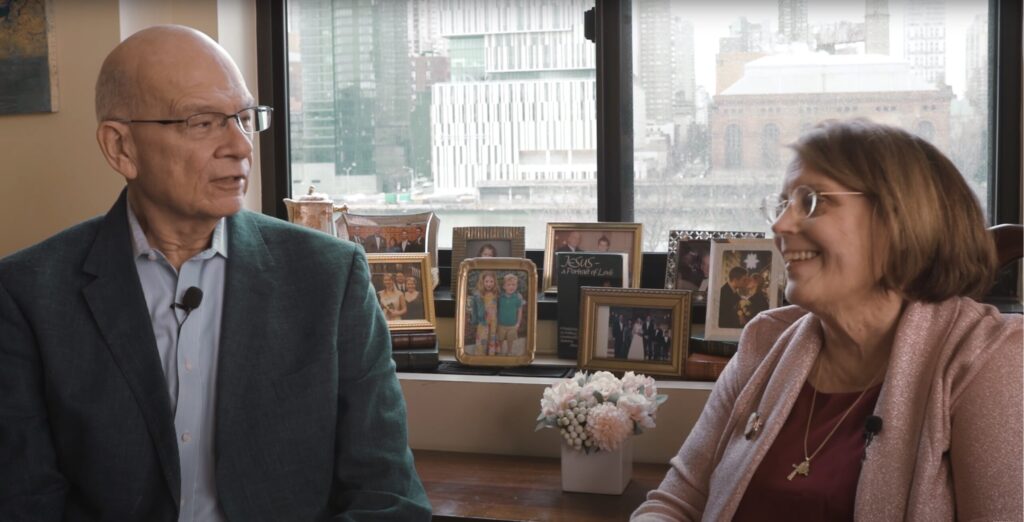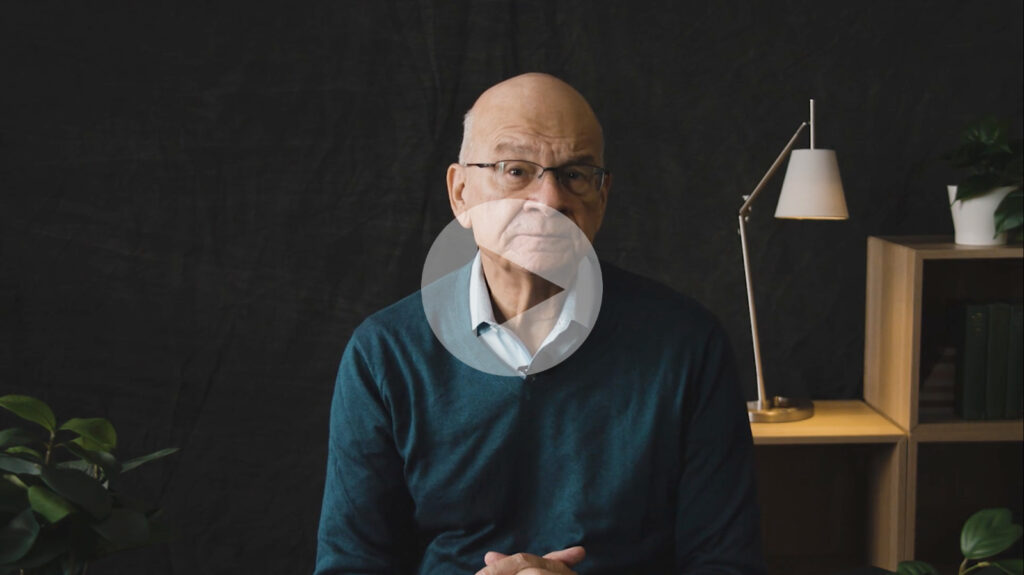I was born with a literal and figurative hole in my heart. The physical one (also known as a heart murmur) healed on its own. The second has yet to experience permanent filling. For that, I will have to wait until eternity.
Saint Augustine seemed to reference this “God-shaped hole in our hearts” when he said, “You have made us for yourself, O Lord, and our heart is restless until it rests in you.” [] [1] St. Augustine and Maria Boulding, The Confessions (New York: New City Press, 1997), 35. I see echoes of this emptiness-met-in-God longing in Ecclesiastes when the author says God “has put eternity into man’s heart” (Ecc. 3:11). [] [2] All Scripture references are ESV unless otherwise noted. Paul makes the same allusion to a heart chasm when preaching to the Athenians in Acts 17. “[God] made from one man every nation of mankind to live on all the face of the earth… that they should seek God, and perhaps feel their way toward him and find him.” The emptiness in our hearts can lead us to discard our false solutions to our longings and prompt us on our way toward true and lasting completion in Christ.
When I talk about this God-shaped hole in my heart, I do not like to jump to the easy conclusion as can be heard in many Sunday School classrooms as the answer for everything. “Jesus!” Sure, that may be “correct” but instead of alluding to this general need for Jesus, I would rather talk about how we need Jesus. Inside of that chasm of our souls we have what I believe are good needs. Before the Fall, God made us good—and needy. We have core needs for things like belonging, and to be affirmed, safe, and loved.
We can see the need for belonging after the completion of the created world. Although God declared the world and humanity “good,” it was “not good” for man to be alone (Genesis 2:18). Thousands of years after Creation, we can still see echoes of humanity’s Edenic need to belong. Studies have found that when we have human attachments, our lives can flourish; when we do not, humans decrease in health and overall well-being. [] [3] Baumeister, Roy F., and Mark R. Leary. 1995. “The Need to Belong: Desire for Interpersonal Attachments as a Fundamental Human Motivation.” Psychological Bulletin 117: 497–529. https://doi.org/10.1037/0033-2909.117.3.497.
I can see the need for affirmation in my children. When my three-year-old, Ellis, colors a—ahem—masterpiece, and holds it out to me to look, what does he desire? He needs verbal affirmation from his mom. This natural desire is not sinful. I can infer this when I examine creation and see that God declared it “good.” After the creation of humanity, he said we were “very good” (Genesis 1:11, 31). Later, inspired by the Holy Spirit, Paul says we are “masterpieces” (Ephesians 2:10). (Even if my son’s art is not a technical masterpiece, at least we are.) Why would God repeatedly affirm us, other than the fact that we need to hear it?
The ideal heart posture, when we perceive this neediness and see it met in creation, is for us to look through creation, not to creation, but to the Creator who is the ultimate Need Meeter of our hearts.
The ideal heart posture, when we perceive this neediness and see it met in creation, is for us to look through creation, not to creation, but to the Creator who is the ultimate Need Meeter of our hearts. Such awareness ideally leads to worship and gratitude to God (Romans 1:20-25).
However, this worshipful ideal is often not what occurs. Christopher West, a student of Pope John Paul II’s work, Theology of the Body, says Christians have three options when it comes to our heart’s emptiness. The first option is that of the stoic: When we feel those needs to be seen, known, loved, to belong, or to be affirmed, we can scoff politely to ourselves and say, “Needs? What needs? I am good. I have the Lord and that’s all I need.” Or, we can take the route of the addict: “That felt so good to be affirmed, seen, and known! I am going to see what else or who else can help me to feel that way.” We hungrily race forward, seeking to suck as much marrow out of life as possible. We do not look through the created object to the Creator; we stare instead at the person or thing or goal, making it an idol. We should instead walk the third road, the one chosen by what West calls the “Christian mystic” (though not everyone would be comfortable with his terminology):
The mystic is the one who allows himself to feel the deepest depths of human desire and chooses to ‘stay in the pain’ of wanting more than this life has to offer. Having walked through many purifying trials (what the mystical tradition of the Church calls ‘dark nights’), he is able both to do without the many pleasures of this world and to rejoice in all the true pleasures of this world without idolizing them—that is, without trying to suck infinity out of them. As the Apostle Paul says, ‘I have learned the secret of being well fed and of going hungry, of living in abundance and of being in need’ (Philippians 4:12). [] [4] West, Christopher. Fill These Hearts: God, Sex, and the Universal Longing. New York, NY: Image, an imprint of the Crown Publishing Group, 2018. 32.
I did not understand any of this growing up in 1980s and 90s Moral Majority evangelical America. I felt those good needs, but instead of taking them to Jesus and looking through creation to meet them in Him, I tried to suck infinity out of the finite. I did this through both church-acceptable and unacceptable ways: The former was through perfectionism, people pleasing, and performance. “Am I good enough?” I asked as I held up my grades and earnest Christian goodness to my family, teachers, and youth leaders. “Am I worthy of love, affirmation, and belonging?” I asked anyone while running the treadmill of performance. I was an idol worshiper but did not know it.
I also had some “Church-unacceptable” ways of seeking to get those needs met, the primary one being my attractions or romantic desires for my same gender. It is odd using the word “attractions” or “romantic desires” to describe my five-year-old heart, but all I knew even at that age was that I felt differently about my girl-friends than I did about my boy-friends. Boys were more like my brothers with whom I fought and happily played GI Joes and Legos. Girls were intriguing. However, in the 80’s and 90’s, the narrative I overheard on the Christian radio about “the homosexual agenda” was that “There was a war on marriage, and homosexuals were going to come to your neighborhood and… murder you in your sleep” – or something like that. (I may be misremembering slightly.) However wrong I am on the exact words, the general tone toward “the homosexuals” was they were bad, we were good, and they need to know Jesus and become good and heterosexual like us.
With this backdrop, my little girl heart did not think, “This is my particular version of sexual brokenness, which I need to surrender to the Lordship of Christ like everyone else is called to do.” No, I thought, “I need to shut this mess down.” I vividly remember looking down at my abdomen in church while attending my Christian university (and while dating my secret Christian girlfriend). Where is the gay part? I thought. Is it like my appendix? Can I cut it out?
The narrative had shifted slightly in the early 2000s to become less about some sort of “murderous homosexual agenda” and more about promoting an ex-gay narrative. Truly, this shift had begun decades before, but because of my secret same-sex relationship and the growing prevalence of the internet, I had only recently stumbled upon it. The ex-gay storyline went something like this: There are people who have gay tendencies who end up in hyper-sexualized same-sex relationships. They usually have many partners and do drugs, but then they find Jesus and magically become straight and sober. How do I become more Christian to become not-gay? I wondered as I read story after story online. I am a super-Christian. I just have this relationship… I was baffled. In desperation, I began to sensitively tune my ears to hear if there were any Christians with whom I could safely share my internal battle.
The Church had an opportunity. In the midst of the promotion of the ex-gay movement came an era of what I tongue-and-cheek call “Porn and Pancakes.” Again, my exact memory on this may be slightly blurry, but I distinctly remember at least one or two church events by that name. Incentivized by the promise of early morning pancakes, the purpose of the events was to get men together on a Saturday morning so they could be honest about their current or former (heterosexual) pornography addictions. These men ate breakfast, confessed sexual sin, and came alongside one another with brotherly encouragement to “beat this thing.” I am certain good fruit came from these events, but the challenge for me came the following day.
On Sunday morning, pastors invited men from these events to share their testimonies on stage. Soon after stepping off stage, however, the same men who seemed to have sincerely repentant hearts for their own heterosexual sinful behavior felt no qualms over spewing out gay jokes, effeminate-man jabs, and general disgust toward people like me. I quickly wrote off such men and pastors as unsafe. Why would I want to engage in an honest, vulnerable dialogue with church leaders who were disgusted by me and my friends?
I reached a point where I did not know how to live as a Christian anymore. I became suicidal, thinking my only two options for my future were death or to come out as a lesbian atheist. The former option was birthed out of a summation of the church’s language around this conversation. Sinners were welcome, certainly, but only the heterosexual kind. I did not know how to become more Christian in order to be heterosexual. So, to appease the church crowd, I thought the Christ-following answer was to kill the gay out of me.
Or, I could come out, follow my heart, and find a woman to marry. I would have to abandon my faith, I thought, because I believed God’s design for marriage was between a man and a woman. Sex difference was critical for men and women in marriage, because, when men and women die to self to be one in and through their differences, they show their kids, neighbors, and strangers in the grocery store a small picture of how God (who is ontologically different from humanity) died to be one with us.
I believed that. I still do. I just did not know how to live it out without wanting to end my life.
By the grace of God, in that season, I met someone who offered me a third path forward. Technically, she was my therapist to whom I reached out for help with my depression, but this woman walked with God. She seemed to float rather than walk on the same ground as everyone else. Empowered by the Spirit, she perceived the core needs in my heart. These needs ran deeper than my longing for an ideal wife, or wanting to perform, to be perfect, or to people-please my way into soul-contentment. She, Carolyn, helped me to recognize the needs beneath my wants. “Laurie?” she would ask. “When you envision the ideal perfect woman, what do you picture?” I am not telling you, I thought. That is awkward. You’re, like, 60 years old. But what did I have to lose? I told her.
I was surprised that the words that came tumbling out of my mouth were not sexual in nature, rather, they were heart-words. “The ideal woman would see, know, and love me—for who I am,” I said. Carolyn leaned in close, looked me in the eye (which is the antidote to shame), and said, “Those are good needs. You are just looking to the wrong place.” The right place to look was not to a man. That would have been idolatry, too. I thought I was smarter than her, however, and said, “Well, don’t say ‘Jesus,’ because I’ve tried him, and I am like a super-Christian, so…”
Carolyn swallowed, smiling kindly. “Well, the answer is Jesus…” I rolled my eyes. “But you have a lot of barriers between those good needs inside and the One who wants to meet them in you.” This made me think. (God can work with pauses that make us think.)
As the months of journeying with Carolyn wore on, I realized she was right. I had a lot of barriers between those good needs and the Need Meeter of my soul. Certainly, some of those barriers included unconfessed sexual sin, but I had more confessing to do than just that of sexual indiscretions. I had to repent of years of idolatry related to earning my value in what I did and who liked me.
Another hurdle between my good needs and Jesus was ungrieved pain and unconfessed bitterness over how the church neglected to care for queer people like me who were honestly wrestling with their faith and sexuality. Other obstacles included regular-old, “I need to process what it was like to grow up in a post-Fall family.” (Every child of imperfect parents needs to do this. My kids already need to do this with me, and they haven’t even turned double digits yet.)
As Carolyn and I patiently picked through the shrapnel littering my war-torn heart, something odd and perhaps clichéd happened: I began to fall in love with Jesus. I found myself walking around with a goofy, in-love grin as I listened to worship music on my iPod. I began to enjoy His presence as I traveled from meeting to meeting, gathering interviews for my newspaper reporting job. We laughed together, cried together, and fought. (Well, I fought Him. He is a bit too patient and kind to outright fight me, but He is relentless in His encouragement to follow His path of flourishing as written in the Bible.)
As Carolyn and I patiently picked through the shrapnel littering my war-torn heart, something odd and perhaps clichéd happened: I began to fall in love with Jesus.
Our relationship was odd, and oddly empowering—but that seems to be common when encountering the love of God. “May you experience the love of Christ, though it is too great to understand fully. Then you will be made complete with all the fullness of life and power that comes from God” (Ephesians 3:19, NLT). God’s love empowers us to…become straight? No. That is too small to be the goal of God’s love. God’s love empowers all of us to die to our selfish desires, whether gay or straight, daily (Luke 9:23).
In the midst of this surrender into love, I found myself growing joyful. I am one of those happy single people, I thought. I still experienced attractions to the same sex, but I did not feel owned by those desires any more. True joy does not come from women, work, or people’s perceptions of me. It comes from Jesus. With that joy, options for my future opened: I began to look into PhD programs on the east side of the country to become an English professor.
As I planned my career pivot, I sensed God’s hand on my shoulder, saying, “I have someone for you.” Like the newfound obedient child of God that I was, I said, “No.” The thing about God, however, is that when He invites you to give your life to him, He asks for the whole thing (Matthew 10:38-39). “But God!” I argued, as I did so often in those days. “You know me, and I know you! I know your design for marriage is supposed to be between different sexes to show the world a picture of how different you are from us and yet want union with us. How are you going to work that out with me?” Turns out, God can do anything.
The story of my dating and marriage to the man who is now my husband is too long for this article, but suffice it to say that God had my heart connect not to all men (that would be immoral, too), but to one man, Matt. Our dating, marriage, and raising of kids was not a stereotypical Hallmark movie. (You can read all about how it almost fell apart at year seven in our book, An Impossible Marriage.) This year, however, we happily celebrated 14 years of marriage.
Before you go forwarding this article to your LGBTQIA friends and point to the part about how they, too, can have a heterosexual marriage and three kids (for the low-low price of “your soul!”), I want to highlight something: The climax of my story is not when I married Matt. The high point is when I said, “Jesus, you are the Need Meeter of my soul. You are what I long for. I am sorry for all of the ways I have turned away from you. My soul finds rest when it finds its rest in you.”
Since I was born with that literal hole in my chest, I have been on a journey to find completion for the figurative one. I have not yet found lasting wholeness on this side of eternity (as none of us Christ believers have, since we yearn to be completed), but there are times I breathe in a whisper of completion like an early spring day that promises a warm summer to come.
As I experience Jesus in Scripture, in worship, and as I look through creation to the Creator, I feel my deepest needs met in that moment. And in my best moments on my best days, I look up and say back to God, “Thank you. I see you. Thank you for seeing, knowing, and loving me like no one, and nothing else can. You are what I need.”





